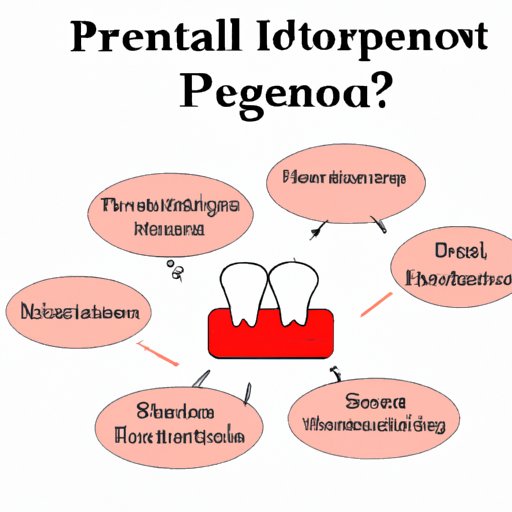
Introduction
Periodontal disease, commonly known as gum disease, is an infection of the gums’ tissues that could lead to tooth loss or other severe oral health complications. According to statistics, about 50% of adults aged 30 and above in the United States suffer from some form of gum disease. Therefore, it is essential to understand the importance of seeking treatment for periodontal disease.
Gum Disease: Understanding Periodontal Treatment
Periodontal treatment is a dental procedure that focuses on preventing, diagnosing, and treating periodontal disease. This procedure entails scaling and root planing to remove plaque, bacteria, and tartar from the teeth’ surface and below the gumline. Periodontal treatment is essential to halt the progression of gum disease, preventing further complications such as tooth loss and bacterial infections.
There are different types of periodontal treatments available, but they all focus on eliminating the infection, repairing the damage, and preventing the progression of periodontal disease. Depending on the severity of the gum disease, your dentist may recommend nonsurgical or surgical periodontal treatment.
Healthy Gums, Happy Life: The Benefits of Periodontal Treatment
Periodontal treatment offers several benefits that go beyond just maintaining healthy gum tissue. Below are some of the benefits of periodontal treatment:
Improved overall oral health
Periodontal disease could spread throughout the mouth and cause bacterial infections in other areas such as the jawbone. Periodontal treatment aims to eliminate the bacteria causing the infection, ensuring optimal oral health.
Reduced risk of tooth loss
Gums are what hold your teeth in place; hence healthy gums mean a healthy and secure tooth structure. By seeking periodontal treatment, you can save your teeth from the damages of gum disease and eventually tooth loss.
Improved self-confidence due to a healthier smile
Healthy gums and teeth give you a confident smile. Periodontal treatment ensures the preservation of your teeth and gums, leaving you feeling confident and happy.
From Gingivitis to Periodontitis: How Periodontal Treatment Can Save Your Smile
Gingivitis is the early stage of periodontal disease characterized by mild swelling and inflammation in the gums. Without proper treatment, gingivitis leads to the more advanced periodontitis. In periodontitis, the infection spreads to the bone and fibers supporting the teeth, leading to tooth loss. If you suspect that you are suffering from these types of gum disease, it is crucial to seek periodontal treatment immediately.
Periodontal treatment can halt the progression of gum disease by eliminating and preventing the spread of the infection. Treatment ensures the preservation of your gums and teeth, saving you from the distress of tooth loss and other oral health problems.
A Comprehensive Guide to Periodontal Treatment: What to Expect at the Dentist
Periodontal treatment is a comprehensive dental procedure that might involve different types of treatments, depending on the severity of your gum disease. Below is a breakdown of the different types of periodontal treatment:
Non-surgical
If caught early, non-surgical treatments such as scaling and root planing are often enough to eradicate periodontal disease. Scaling involves the removal of plaque and tartar from the teeth surface and below the gumline, while root planing smoothens the tooth’s roots to prevent the buildup of bacteria and plaque.
Surgical
If the gum disease is advanced, your dentist may recommend surgical periodontal treatments, such as flap surgery, bone grafts, or guided tissue regeneration. These treatments are more invasive than non-surgical treatments, but they are still essential to preserve your oral health.
Periodontal treatment procedures may require local anesthesia to minimize discomfort during and after the procedure. Your dentist will prescribe pain relievers, antibiotics, or other medications to help manage any pain, swelling, or discomfort. It is vital to follow your dentist’s post-op instructions for optimal healing.
Preventing Gum Disease: The Importance of Periodontal Treatment and Maintenance
Preventing gum disease is easier and more cost-effective than treating it. Regular dental check-ups and cleanings are essential in the prevention of periodontal disease as it allows dentists to detect and treat early signs of gum disease. Additionally, proper brushing and flossing can significantly reduce your risk of developing periodontal disease.
If you have previously undergone periodontal treatment and wish to maintain healthy gums, ensure that you follow your dentist’s instructions. Practice good oral hygiene, and maintain a healthy diet and lifestyle.
Conclusion
Periodontal disease is a severe oral health condition that you should not ignore. Seeking periodontal treatment, whether by non-surgical or surgical treatments, can halt the progression of gum disease, preserve your gum and teeth structure, and leave you feeling more confident about your smile. Make sure you schedule regular dental check-ups with your dentist to maintain healthy gums and prevent future oral health complications. If you suspect that you have periodontal disease, don’t hesitate to contact your dental professional to book an appointment and find out the best plan of action for your oral health.





